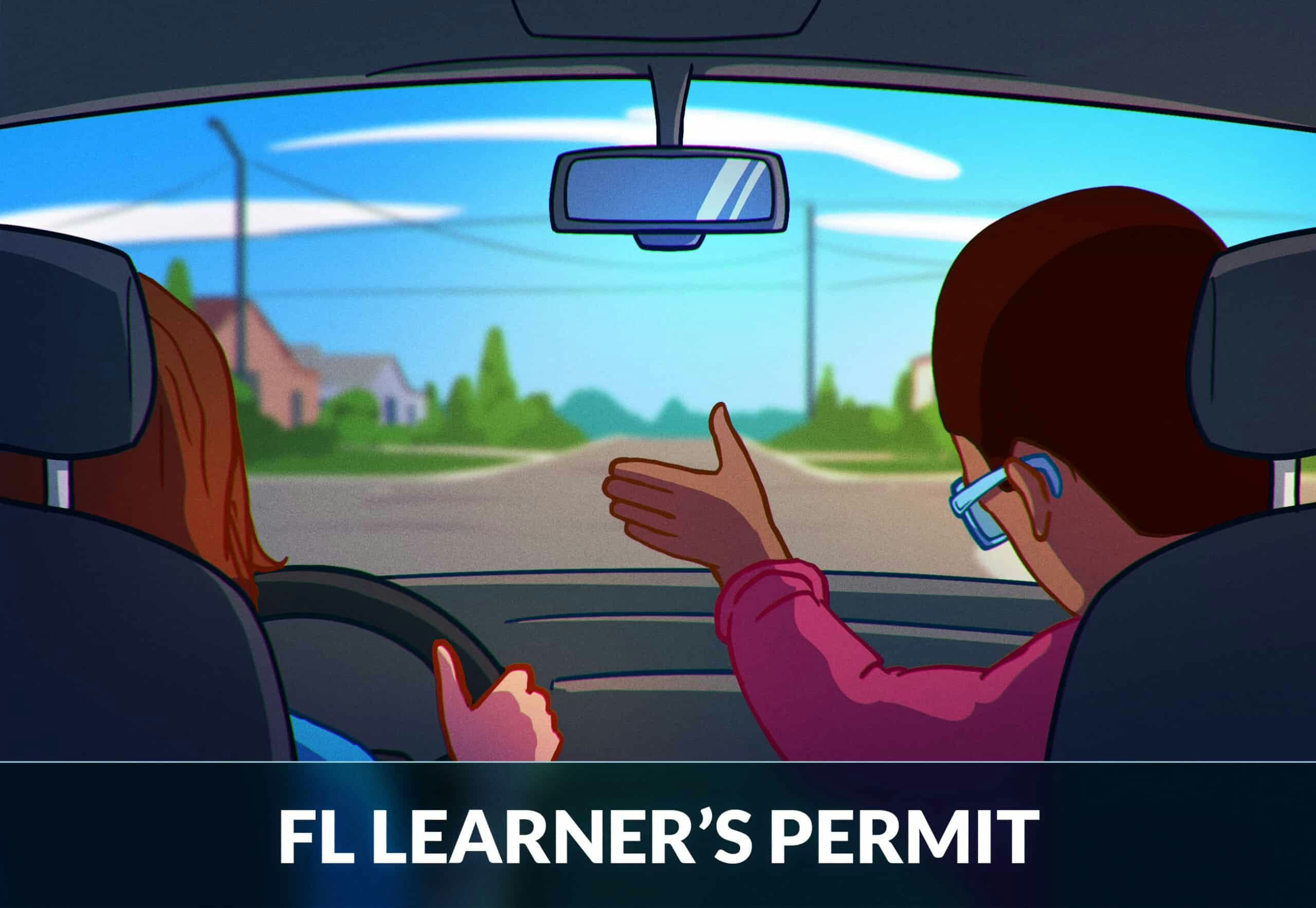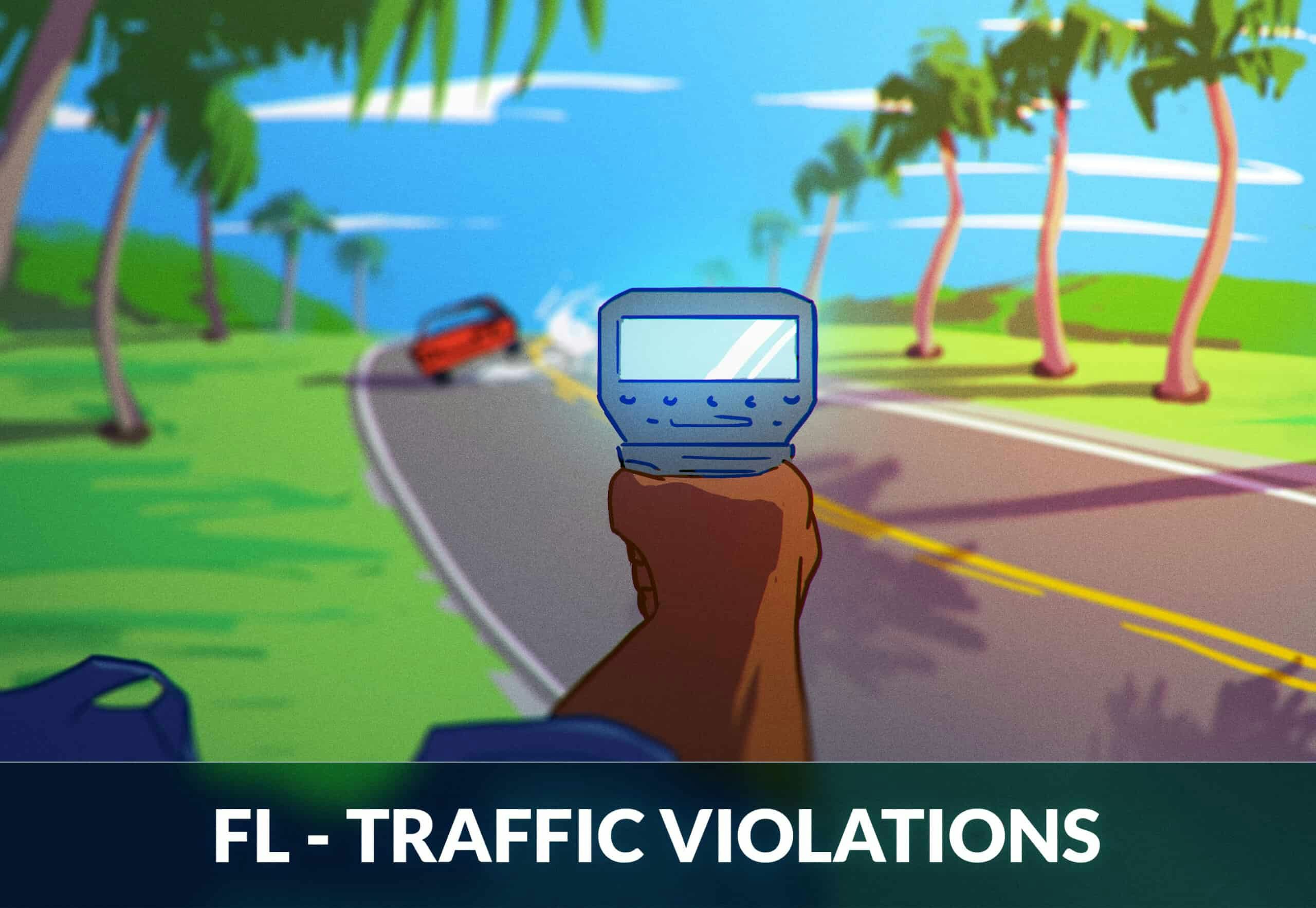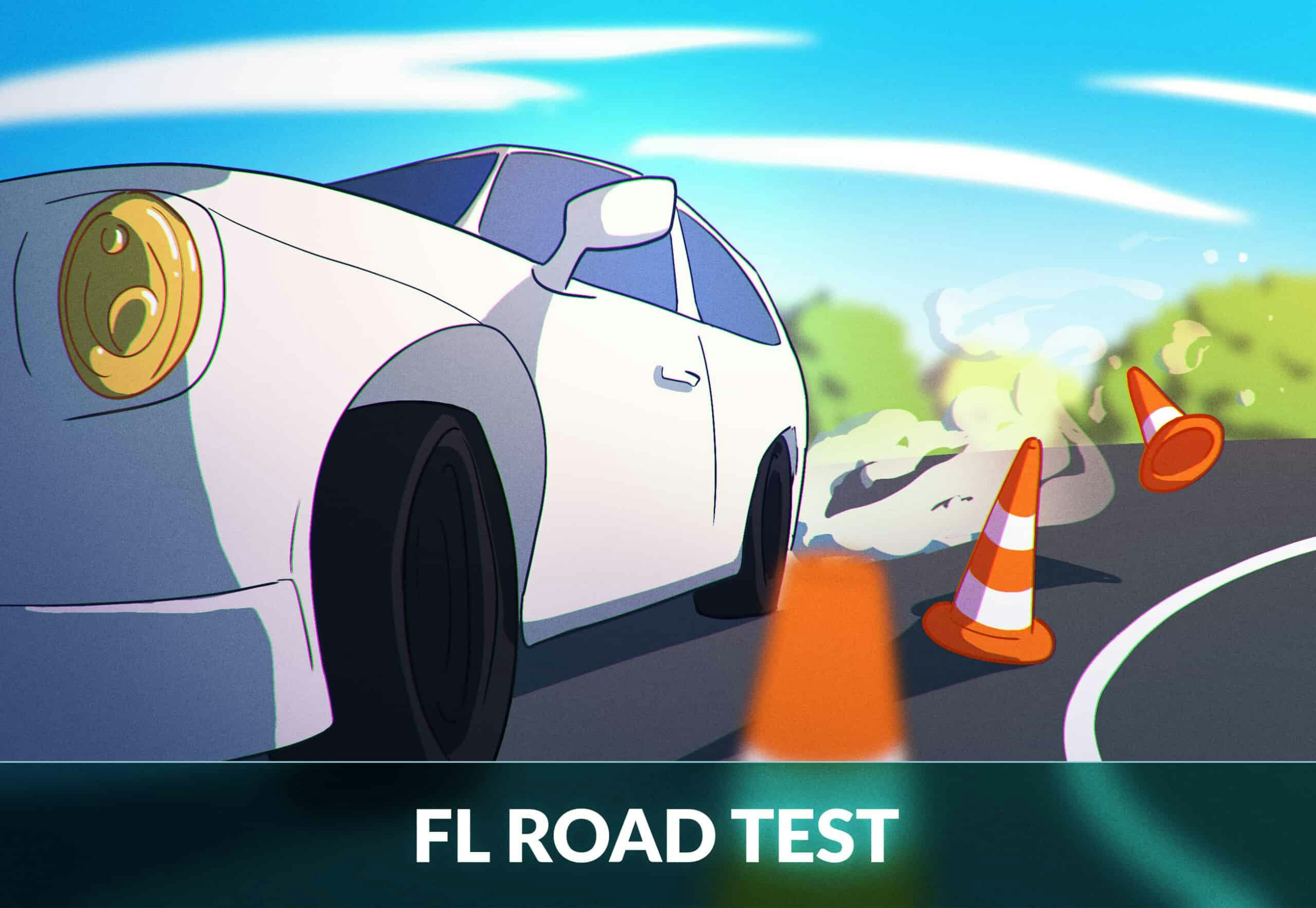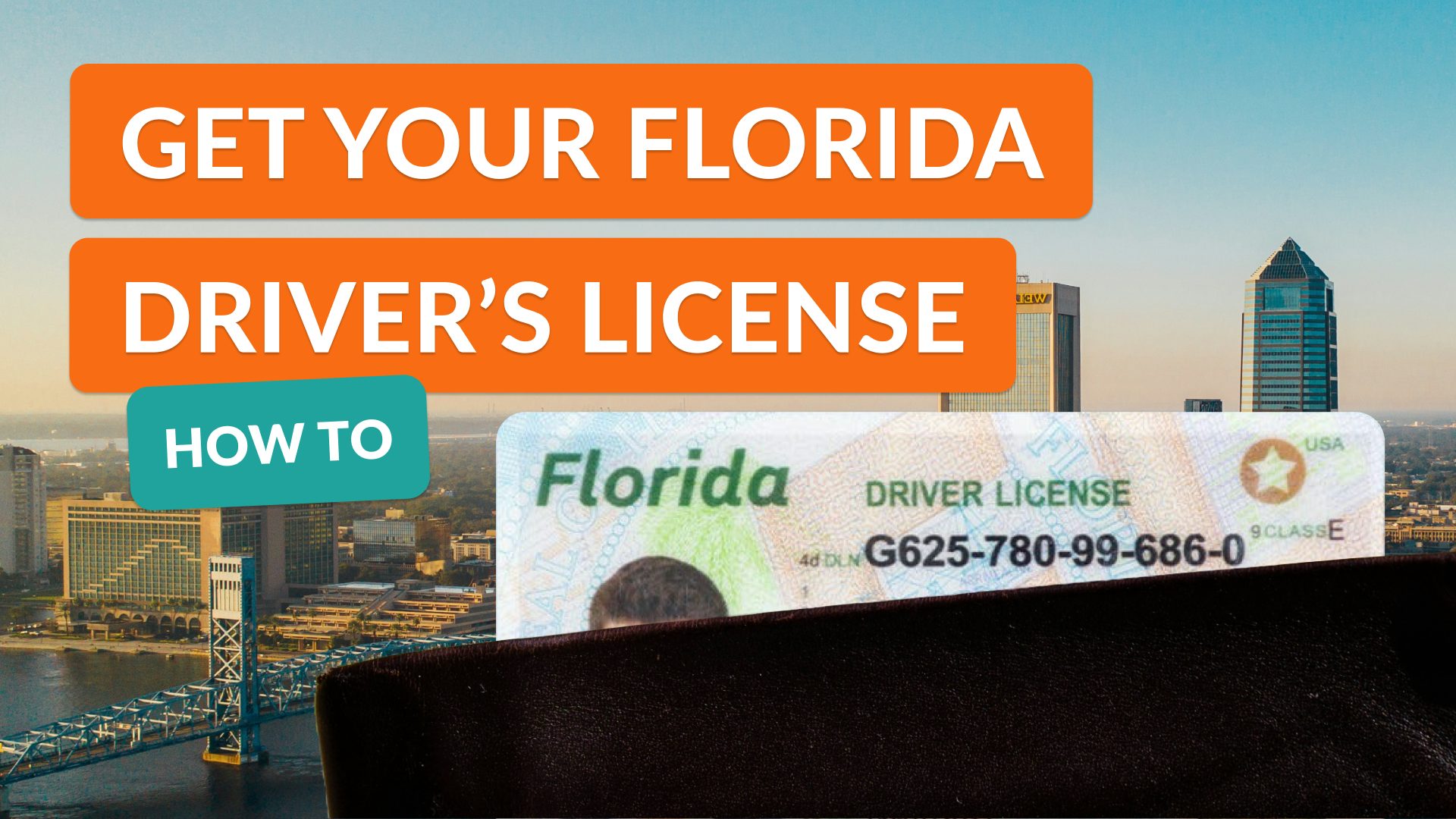
Florida Driver’s License: A Complete Guide
Getting your Florida driver’s license is an important step towards independence and mobility. The process can sometimes feel complex and uncertain, but this guide will help you navigate it with ease. We’ll cover everything you need to know, starting with the different types of licenses and at what age you need them, and then the step-by-step process to obtain your FL driver’s license successfully.
Types of FL Licenses
15 Years Old – Learner’s Permit
At 15, you can apply for a learner’s permit, which allows you to start practicing driving. However, there are restrictions when driving with it:
- A licensed driver aged 21 or older must be in the front passenger seat at all times.
- For the first three months, driving is allowed only during daylight hours.
- After the first three months, you may drive until 10:00 PM.
16 Years Old – Florida Intermediate License
Once you’ve held your learner’s permit for at least 12 months without any traffic convictions, you can apply for an intermediate license. At 16, you are allowed to drive alone with the following restrictions:
- Driving is permitted between 6:00 AM and 11:00 PM.
- Outside these hours, you may drive only if traveling to or from work or accompanied by a licensed driver who is at least 21 years old.
17 Years Old – Expanded Driving Privileges
At 17, you gain more flexibility with fewer time restrictions:
- You may drive between 5:00 AM and 1:00 AM.
- Outside these hours, you can drive only if traveling for work or accompanied by a licensed driver who is at least 21 years old.
18 Years Old – Full Florida Driver’s License
At 18, you can obtain your full, unrestricted Florida driver’s license, allowing you to drive at any time without restrictions.
How to Get a Driver’s License in Florida
Step 1: Complete the TLSAE or DATA Course
The Traffic Law and Substance Abuse Education course, or the Drug, Alcohol, and Traffic Awareness course, is mandatory in Florida for all first-time driver’s license applicants.
The course is typically 4 hours long. You can take it either online or in-person. The online version allows you to complete it at your own pace, often with the ability to save your progress and return later.
There isn’t a final exam for the course. But once you complete the course, you’ll receive a certificate, which you must submit when applying for your learner’s permit in Florida.
Step 2: Get Your Learner’s Permit
The learner’s permit is a required step before you can apply for a full driver’s license. In this guide we list all the steps on how to get one.
- Drivers Under 18: need to hold the learner’s permit for a minimum of a year without any traffic convictions before they can apply for a full license.
- Adults: there is no mandatory time period during which they must hold a learner’s permit before applying for a full driver’s license.
Step 3: Pass the Knowledge Exam
The test consists of 50 questions. To pass, you need to score at least 80%, which means correctly answering at least 40 out of the 50 questions. Expect a mix of multiple-choice and true-or-false questions. You can study for your permit test with our Florida permit practice tests here.
Where to Take the Test
- Department of Motor Vehicles (DMV) Offices: The most common place to take the written test is at a local DMV office. Check for the nearest one and their test scheduling.
- Tax Collector’s Offices: In some counties, tax collector’s offices also administer the written driving test.
- Third-Party Administrators: Florida allows some third-party providers, such as driving schools, to administer the written test. These providers are state-approved and offer the same test as the DMV.
- Online Option for Minors: Florida offers an online testing option but requires meeting specific online testing requirements.
- High Schools: Some high schools in Florida participate in a program that allows students to take the written driver’s education test at school.
Step 4: Pass Vision and Hearing Tests
These tests are conducted at the DMV when applying for your license.
- Vision Test: You’ll be asked to read from an eye chart to evaluate your visual acuity. If you wear glasses or contact lenses, bring them to the test, as you’ll need to wear them during the evaluation.
- Hearing Test: This quick test checks your ability to hear a normal conversational tone or a warning horn.
Step 5: Complete Behind-the-Wheel Training
- If you’re under 18, Florida requires you to log at least 50 hours of driving practice, including 10 hours at night, before taking the road test.
- If you’re over 18, there’s no legally specified duration, but it’s crucial to practice until you feel confident and ready for the road test.
You can do the practical training at a state-approved driving school. Alternatively, you can practice with any licensed driver aged 21 or older, often a family member or friend, who is comfortable and competent in guiding you.
Step 6: Take the Road Test
You can schedule your road exam online through the Florida Department of Highway Safety and Motor Vehicles (FLHSMV) website or by calling your local DMV office. The FL road test is usually conducted at your local DMV office. Some third-party providers, like driving schools, also conduct road tests. Expect the exam to last about 20 to 30 minutes. Remember that you must provide your own vehicle to take the test in.
If you fail the road test, you can retake it after a waiting period of at least 24 hours for the second attempt, and 30 days for a third attempt. Pay attention to the examiner’s feedback to understand where improvements are needed. If you want to know more, read our guide about the Florida road skills test and how to prepare for it.
Step 7: Get Your Florida Driver’s License
After you’ve submitted all paperwork, completed the requirements & tests, and paid any outstanding fees, you will get your license. Typically, you’ll receive a temporary license on the spot, with your official license being mailed to you within 7-10 business days.
Additional Requirements Based on License Type
General Documents
- Primary Identification: A valid U.S. passport, an original or certified U.S. birth certificate.
- Social Security Number: A SSN card, W-2 form, paycheck showing SSN.
- Proof of Residential Address (Two Required): Utility bills (not older than two months), Florida voter registration card, Florida vehicle registration or title, rental or lease agreement.
All your documents must be original or certified copies. Photocopies and laminated documents are not accepted.
For a Learner’s Permit
- Certificate of Completion for the TLSAE Course: Proof that you’ve completed the Traffic Law and Substance Abuse Education course.
- Parental Consent Form (for Minors): Signed in the presence of a driver’s license examiner or notarized if a parent or guardian will not be present.
- Parent Proctoring Form (for Minors): This document ensures that a parent or guardian supervises the minor’s driver education process outside of a traditional classroom or testing center.
- Certification of Minor Driving Experience Form (for Minors): Verifying that the minor has completed the required hours of supervised driving practice.
For the Driving Skills Test
- Valid Learner’s Permit: You must present an unexpired learner’s permit.
- Test Vehicle: The car used for the test must be in safe, working condition and meet all required safety standards.
- Vehicle Registration: Proof of current vehicle registration is required.
- Proof of Insurance: The vehicle must be insured, and you must present valid proof of coverage.
When Obtaining Your License
- Proof of Passed Tests: Documentation showing successful completion of both the written and road exams.
- Payment for License Fees: Fees vary, so check with your local DMV for accepted payment methods. Find current fees here.
Special Requirements for New Residents and Non-U.S. Citizens
For New Residents
- Out-of-State License: You must surrender your valid out-of-state license.
- Secondary Proof of Identity: Another form of identification, such as an out-of-state birth certificate or passport.
For Non-U.S. Citizens
- Immigration Documents: Acceptable documents include a Permanent Resident Card, Employment Authorization Card, or a valid foreign passport with appropriate immigration paperwork.
- Proof of Florida Residency: The same proof of address requirements as listed in the general section apply.
That’s It!
We hope this guide has been helpful, and that the process of getting your Florida driver’s license seems a bit easier. Good luck, and remember that as the largest permit & road test prep app in the U.S., Zutobi can help you prepare so you pass on the first attempt.
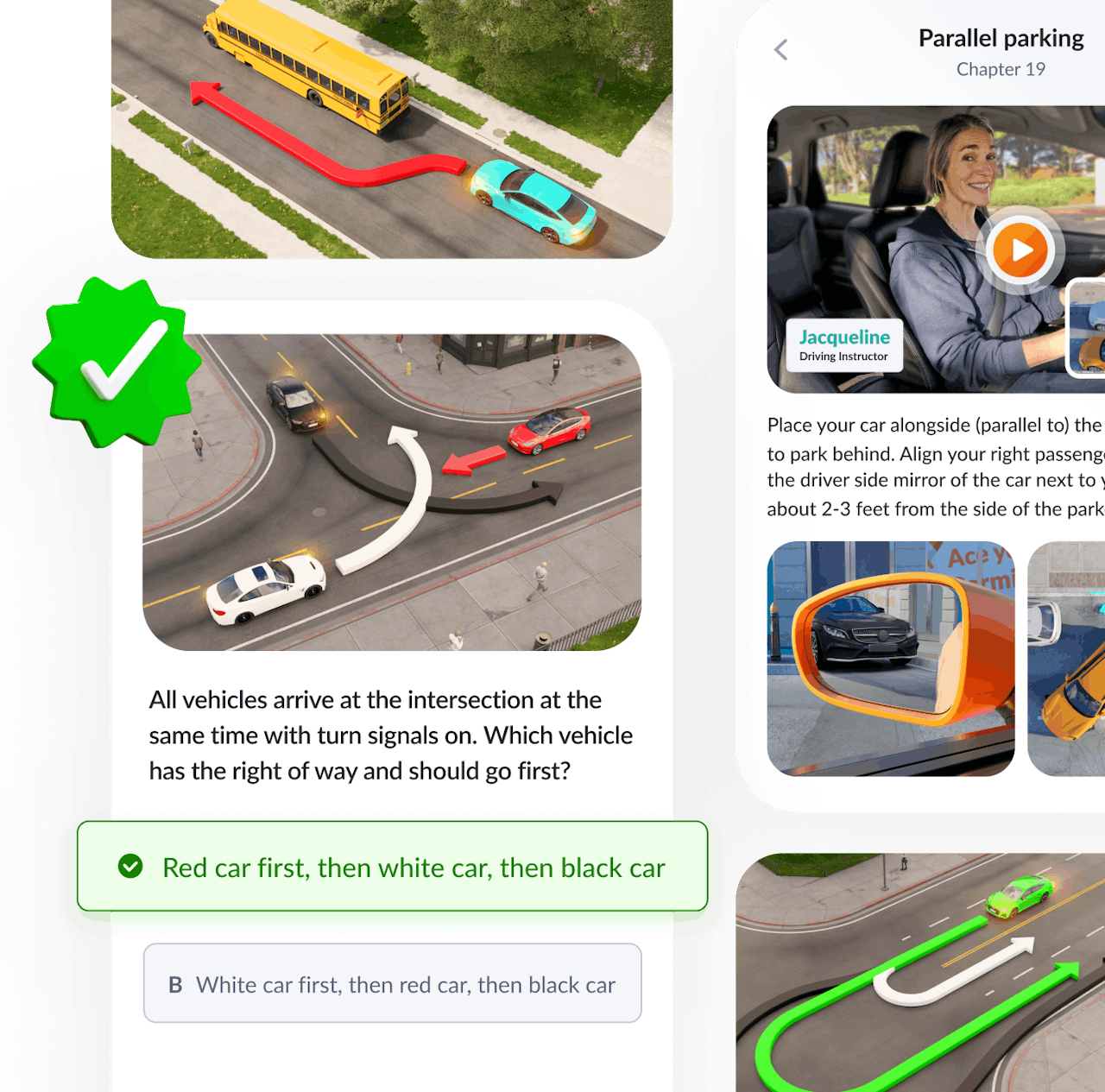
600+ exam-like questions and practice tests
Easy summarized DMV handbook
America’s #1 driver’s ed app with a 95.8% pass rate
Recommended articles
Country
Ace your DMV test, guaranteed
